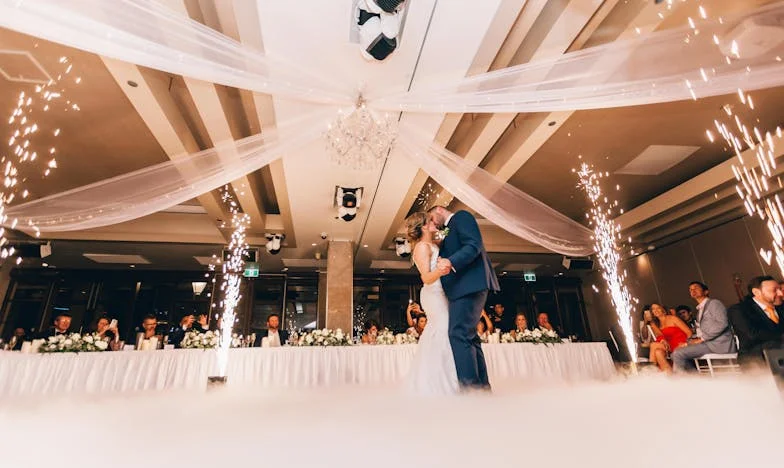When Home Stops Feeling Like Home: A Mother’s Struggle With Boundaries
“You know, Mom, we really don’t have any other option. The rent is insane, and the kids need space. So… we’re moving in next week.”
Paul didn’t even look me in the eye when he said it. He was standing in our kitchen, his phone already buzzing with messages from Emily, his wife, who was probably packing up boxes while he delivered their verdict. It wasn’t a question. It was a statement, a done deal, a sentence passed down while I stood there clutching the handle of the coffee pot so hard my knuckles turned white.
My husband, Mark, just let out a heavy sigh and mumbled, “We can’t say no, Linda. He’s our son. And he’s going to inherit half the house anyway.” As if that ended the conversation. As if all my feelings—the tightness in my chest, the swirl of resentment and guilt and fear—didn’t matter.
I barely slept that night. I lay awake, staring at the ceiling fan spinning shadows across the room, thinking about what it meant to lose control of my own home. For the past ten years, since Paul left for college, our house in the suburbs of Dayton had been my sanctuary. I’d finally put up the wallpaper I liked in the dining room. I’d turned Paul’s old bedroom into a cozy little craft nook, where I could knit or read without anyone interrupting. Mark and I had our routines: Saturday morning pancakes, Sunday afternoon gardening, evenings spent watching Jeopardy, just the two of us.
Now, all I could picture was chaos. Toys everywhere, the TV blaring cartoons instead of the quiet hum of trivia questions, Emily’s voice carrying down the hall as she argued with Paul about whose turn it was to put the kids to bed. I could already smell the chicken nuggets and macaroni and cheese, see my floral tablecloth stained with ketchup. My life, my order, vanishing overnight.
But what got to me most was the way no one even asked. Paul didn’t say, “Would you be okay if we moved in?” He just assumed. And Mark… Mark barely looked up from his newspaper before siding with him. “We can’t refuse, Linda. It’s family.”
I wanted to scream. Instead, I whispered, “Don’t we get a say in this? Is this still our home?”
Mark shrugged and went back to reading. “They need us. We can’t just turn them away, not with the way things are.”
I walked outside into the cool Ohio air and sat on the porch swing, hugging my knees to my chest. Our neighbor, Susan, waved from next door. She saw the look on my face and walked over.
“Linda, what’s wrong? You look like you just saw a ghost.”
I laughed, but it came out shaky. “Feels more like my whole life is about to disappear.”
She listened as I spilled the whole story—the ultimatum, Mark’s indifference, my sense of being bulldozed in my own house—and then she put her arm around me. “It’s not fair for them to just move in like that. You deserve to have your boundaries respected.”
I nodded, but what was I supposed to do? Tell my only son no? Watch him struggle to pay rent he couldn’t afford, maybe even get evicted? The guilt gnawed at me, but so did the anger. I wanted to be a good mother and a good wife, but I didn’t want to disappear.
The next morning, I tried again. Over breakfast, I said, “Mark, this isn’t just about Paul’s needs. What about us? Don’t we have a right to our own space?”
He finally looked at me, really looked at me, and his face softened. “I know this isn’t what we planned. But times are tough. Paul’s had a rough go—he lost his job, Emily’s only working part-time. They can’t make it on their own right now. We’re all they have.”
I pressed my lips together. “But couldn’t we talk about it first? Set some ground rules?”
He nodded. “Of course. We’ll set boundaries. We’ll make it work.”
But when I tried to talk to Paul and Emily about it, they acted like I was being unreasonable. “It’s not forever, Mom,” Emily said, rolling her eyes. “Just until we get back on our feet.”
“And we’ll help out around the house,” Paul added. “We’ll pay some bills, take care of the yard. The kids will love having you around.”
It sounded nice. But I knew how these things went. I’d seen friends let their kids move back in, only to find themselves babysitting 24/7, footing the grocery bills, cleaning up after everyone. I didn’t want to become invisible, a ghost in my own home.
The day they moved in, I watched the U-Haul pull into the driveway with a heavy heart. The kids tumbled out, racing across the lawn, shouting and laughing. Emily started barking orders about where the boxes should go. Paul disappeared to help the movers, leaving me standing in the middle of my living room, surrounded by boxes and noise and the sudden, overwhelming scent of someone else’s life taking over mine.
That night, after everyone was finally asleep, I sat alone at the kitchen table, staring at the chipped mug in my hands. I felt like I was mourning something—my peace, my privacy, my say in my own life.
Mark came in and squeezed my shoulder. “We’ll get through this, Linda. It’s just a rough patch.”
But I wasn’t so sure. I wanted to believe him, but I could already feel myself slipping away, my wants and needs becoming an afterthought in my own home.
Now I ask myself: At what point does kindness become self-betrayal? How do you set boundaries with the people you love most without losing yourself in the process? Tell me—what would you do if your own family stopped asking and just started taking?
